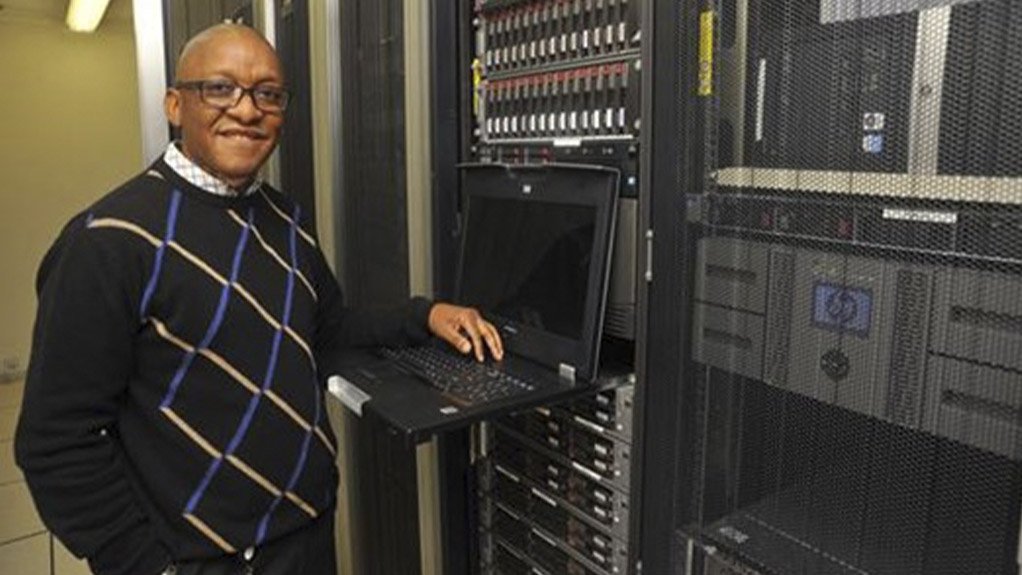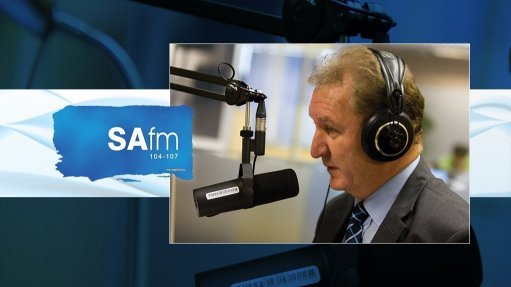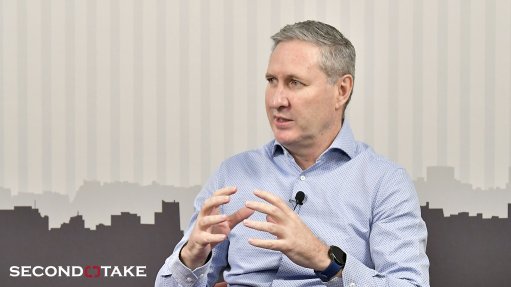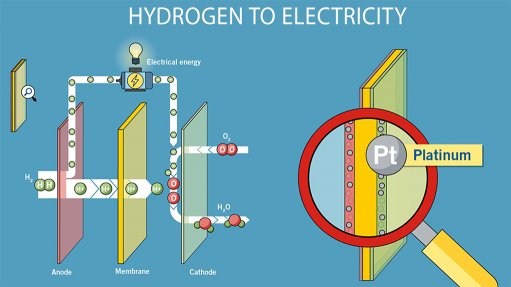Technology’s Contribution to the South African Economy
This article has been supplied by the author and has not been written or solicited by Creamer Media. It may be available only for a limited time on this website.
By Monde Mawasha, Chief Knowledge and Digital Officer - ICT, Research and Strategy
The actions of present generations potentially have an enormous impact on those who will live in the future. One of the main obligations of a generation, therefore, is to leave the next generation with a stronger, healthier economy, as such, that it does not plunder from them by consuming resources at an unsustainable rate.
China and the Asian Tigers are a perfect example of the then-developing nations that drove economic and social development through an economic policy of increasing efficiency gains due to capital accumulation. The Four Asian Tigers (also known as the Four Asian Dragons or Four Little Dragons in Chinese and Korean) are the developed East Asian economies of Hong Kong, Singapore, South Korea, and Taiwan. Between the early 1950s and 1990s, they underwent rapid industrialisation and maintained exceptionally high growth rates of more than 7 percent per annum.
As a developing country, South Africa (SA) can draw great lessons from China and the Asian Tigers experience and success and identify ways to achieve a sustained trajectory of economic growth – growth that is inclusive and built on poverty reduction and shared prosperity. The greatest threat to political stability and social cohesion in SA is now economic growth.
Globalisation has been a major political economy concern for all nations since it is so pervasive and needs to be a pillar of any governments economic policy. It is true that the rise in the 21st century of the tech giants has weakened the ability of governments to use globalisation policy as a tool for economic growth through its waning leverage. It is, however, inaccurate to now abandon it as an economic policy lever. The semiconductor sector policy that the Biden administration is waging is a good example. Thus, the Neoliberal theory concept (Neoliberalism is a model of free market capitalism that favours greatly reduced government spending, deregulation, globalisation, free trade, and privatization) of globalisation has significant weaknesses.
SA, therefore, must consider two polar binaries to ensure proper management of the national economy. First, there is the debate between accumulation theorists, who primarily support the neoliberal globalisation idea, and innovation theorists, who contend that learning and invention are essential to progress in the tradition of Schumpeter. Closely related to this, is the debate between the "codified knowledge" camp, which supports the unique information at the company level that is by definition not driven by global supply chain constraints imposed by a small number of huge global corporations, and the "tacit knowledge" camp.
SA’s economic growth policy should focus on specialists' knowledge that adds value in the global value chain and invest in technologies such as robotics and Artificial Intelligence (AI) to create innovation at the level of the firm (Tacit Knowledge).
Tacit Knowledge comprises, wealth-creating knowledge which includes practical skills established through learning by doing, as well as competencies acquired through formal education and training, and it includes management skills learnt in practice as well as new insights produced by research and development (R&D) efforts. Tacit Knowledge is almost by definition the foundational Political Economy consideration for the future of the country’s economy.
The creation of tacit knowledge is the decisive prerequisite for successful economic development. A weak tacit knowledge base constitutes a major barrier to South African economic growth, climate change initiatives and generally South Africa having distinct economic brand.
By adopting a tacit knowledge-based policy, SA will be able to “catch up” with developed economies and very importantly enable a job-creating economy with huge multiplier effect potential. Tacit Knowledge Policy will work well with the South African Reserve Bank mandate of inflation-targeting. This will ensure that monetary policy and fiscal policy are properly targeted.
It is important to emphasise that learning takes place in all parts of the economy, including in so-called low-tech and traditional sectors. Indeed, learning in traditional and low-tech sectors may be more important for economic development than learning in a small number of insulated high-tech firms. The learning potential (technological opportunities) may differ between sectors and technologies, but in most broadly defined sectors, there will be niches where the potential for learning is high.
Finally, all kinds of workers have skills and learning capacity, including those misleadingly called, “unskilled workers”. In fact, according to a 2022 projection from The New York Academy of Sciences, sub-Saharan Africa will require 2.5 million extra engineers just to meet its development issues.
One of Coega's premier Corporate Social Investment (CSI) programmes, the Coega Maths and Science Programme (MSP) was established in 2013 with the goal of empowering matriculants by giving them the chance to improve their Grade 12 Mathematics and Physical Science exam results. This Programme is a living and breathing example of the adage that South Africa has talent. This talent just needs to be encouraged and harnessed. The MSP’s results have shown improvements in Maths and Science results of the learners by factors of 3 and sometimes even more. Learners who attained 20%, 30%, 40% in Maths and Science exams, within a year improved their marks to 70%, 80%, 90%. These are remarkable numbers and are indicative to the kinds of interventions that can make a real difference in Science, Technology, Engineering and Mathematics (STEM) skills in SA.
Who and how can this scale up to be a primary rather than a secondary intervention? Artificial Intelligence (AI), Cloud Content and Telecommunication are a potential solution to scale the results that the MSP attains. STEM subjects lend themselves to online content creation. Indeed, there is tons of STEM content. This resource needs harvesting.
Coega has collaborated with the KwaZulu-Natal Department of Education to provide STEM content and the devices to access that content. Ethical AI has the capability of being a tutor for learners. AI, through its deployment to understand the learning styles of students and thus algorithms that exist, can guide educators on the best way of presenting and learning the curriculum by considering students’ unique qualities. This insight that AI provides can be made available to teachers and parents. One of the best ways to get a learner to succeed is confidence. AI will be the tutor to build the confidence of the learner, thus creating a virtuous cycle.
Therefore, for South Africa to build the economy of the country, it will need to create a policy framework to enable South Africa to be a Tacit Knowledge economy. Sooner rather than later, South Africa must create data repository of education for the upcoming generation. The prosperity and stability of the country demands that it does so with speed and urgency.
As an adage, the beauty of Artificial Intelligence, is that it is not intelligent enough. So, what it does is, mimic the Intelligent Agent (i.e., the learner).
Comments
Press Office
Announcements
What's On
Subscribe to improve your user experience...
Option 1 (equivalent of R125 a month):
Receive a weekly copy of Creamer Media's Engineering News & Mining Weekly magazine
(print copy for those in South Africa and e-magazine for those outside of South Africa)
Receive daily email newsletters
Access to full search results
Access archive of magazine back copies
Access to Projects in Progress
Access to ONE Research Report of your choice in PDF format
Option 2 (equivalent of R375 a month):
All benefits from Option 1
PLUS
Access to Creamer Media's Research Channel Africa for ALL Research Reports, in PDF format, on various industrial and mining sectors
including Electricity; Water; Energy Transition; Hydrogen; Roads, Rail and Ports; Coal; Gold; Platinum; Battery Metals; etc.
Already a subscriber?
Forgotten your password?
Receive weekly copy of Creamer Media's Engineering News & Mining Weekly magazine (print copy for those in South Africa and e-magazine for those outside of South Africa)
➕
Recieve daily email newsletters
➕
Access to full search results
➕
Access archive of magazine back copies
➕
Access to Projects in Progress
➕
Access to ONE Research Report of your choice in PDF format
RESEARCH CHANNEL AFRICA
R4500 (equivalent of R375 a month)
SUBSCRIBEAll benefits from Option 1
➕
Access to Creamer Media's Research Channel Africa for ALL Research Reports on various industrial and mining sectors, in PDF format, including on:
Electricity
➕
Water
➕
Energy Transition
➕
Hydrogen
➕
Roads, Rail and Ports
➕
Coal
➕
Gold
➕
Platinum
➕
Battery Metals
➕
etc.
Receive all benefits from Option 1 or Option 2 delivered to numerous people at your company
➕
Multiple User names and Passwords for simultaneous log-ins
➕
Intranet integration access to all in your organisation




















